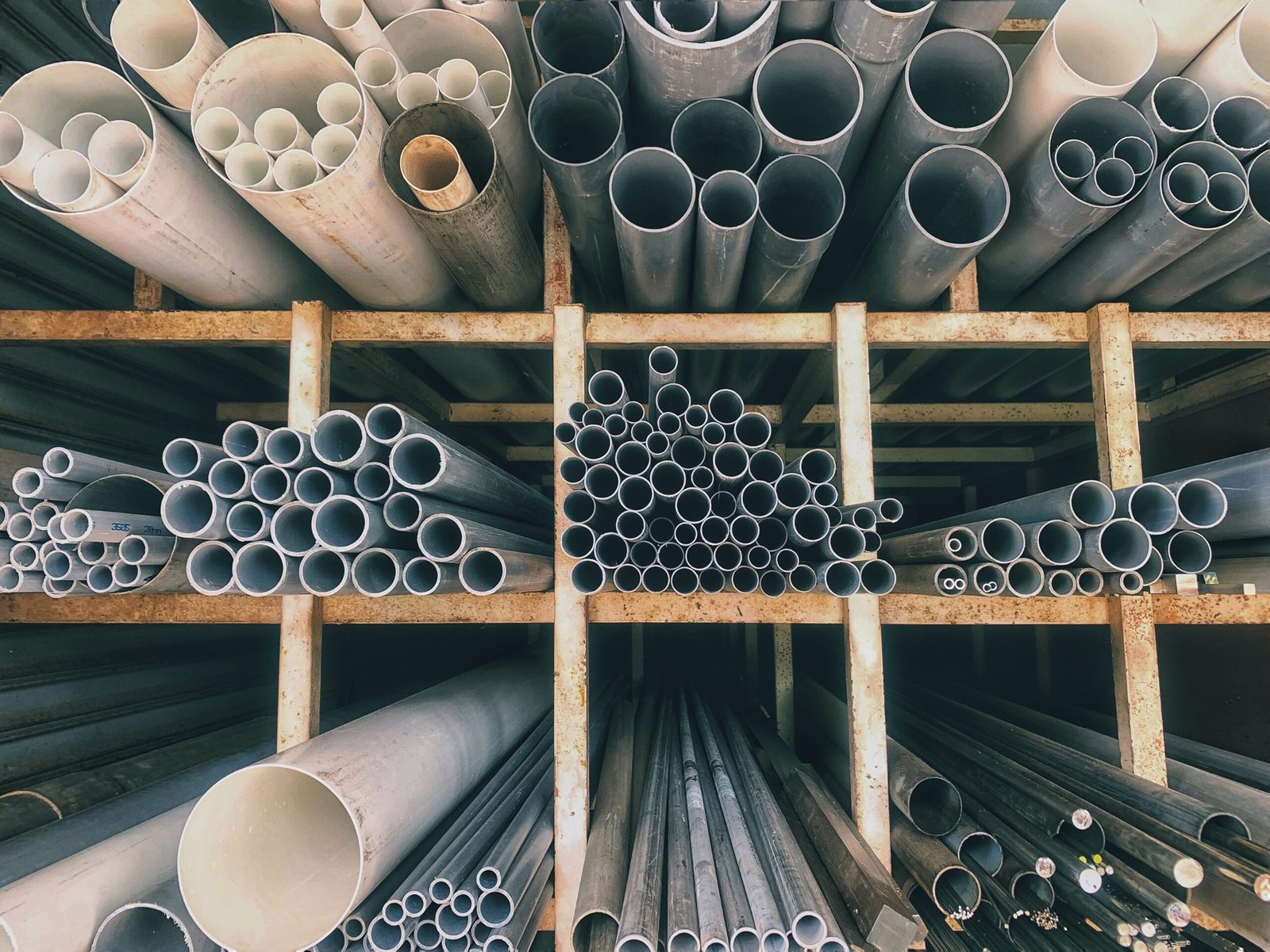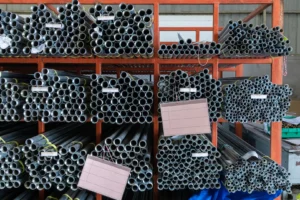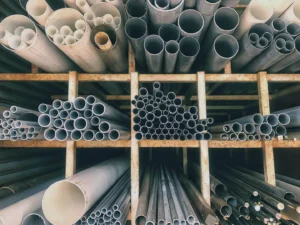Утверждение поставщиков Saudi Aramco и ADNOC: Соответствие ближневосточным требованиям

Are you struggling to navigate the complex vendor approval processes of Middle Eastern giants like Saudi Aramco and ADNOC1? The path is notoriously difficult, and failure can mean losing out on some of the world's most lucrative contracts. The key lies in understanding their unique and demanding specifications.
Becoming an approved vendor for Saudi Aramco or ADNOC involves a rigorous qualification process that validates a company's technical capabilities, financial stability, and adherence to strict quality, safety, and in-country value standards. It is a critical gateway for any supplier wanting to operate in the region's energy sector.
Navigating this landscape requires more than just a great product; it demands a strategic approach to compliance and partnership. For any company, especially one like ours based in China, proving our value goes beyond specifications and price. It's about demonstrating a long-term commitment to the region's goals and becoming a trusted part of their critical supply chain.
At MFY, we've learned that the journey to approval is a marathon, not a sprint. It tests your organization's resilience, attention to detail, and strategic foresight. The standards set by Saudi Aramco and ADNOC are not just bureaucratic hurdles; they are the bedrock of projects that power nations. Their focus on safety, reliability, and local economic contribution through programs like IKTVA (In-Kingdom Total Value Add) and ICV (In-Country Value)2 forces suppliers to elevate their own standards. This process has transformed our approach, pushing us to innovate not only in our stainless steel products but also in our service delivery and strategic partnerships across the Middle East.
What is the background of vendor approval processes for Saudi Aramco and ADNOC?
Entering the lucrative Middle Eastern energy market seems full of promise, but many companies are stopped in their tracks by the historically complex and opaque vendor approval systems of Saudi Aramco and ADNOC. To succeed, you must first understand the origins and philosophies behind these stringent processes.
The vendor approval processes for Saudi Aramco and ADNOC were established to ensure the absolute integrity, safety, and quality of their supply chains for critical national energy infrastructure. Historically rooted in rigorous engineering standards, they have evolved to also drive local economic development and strategic self-sufficiency.
These approval systems weren't created overnight. They are the result of decades of experience managing some of the world's most ambitious and high-risk engineering projects. In my early days in international trade, I saw many companies approach this market with a purely transactional mindset, believing that a low price and a standard ISO 9001 certificate were enough. They quickly learned a hard lesson. These national oil companies (NOCs) view their suppliers not as vendors, but as partners in their mission-critical operations. A failure in a single component, like a stainless steel tube in a high-pressure pipeline, could have catastrophic consequences. Therefore, the approval process was designed as a shield to filter out all but the most capable and reliable partners. Understanding this historical context is the first step. It shifts your perspective from "How do I sell to them?" to "How can I prove I am a worthy partner for their long-term vision?" This change in mindset is crucial before you even begin to fill out the first form. It requires a deep dive into their foundational principles, from the technical specifications born from challenging operational environments to the strategic imperatives that shape their procurement policies today.
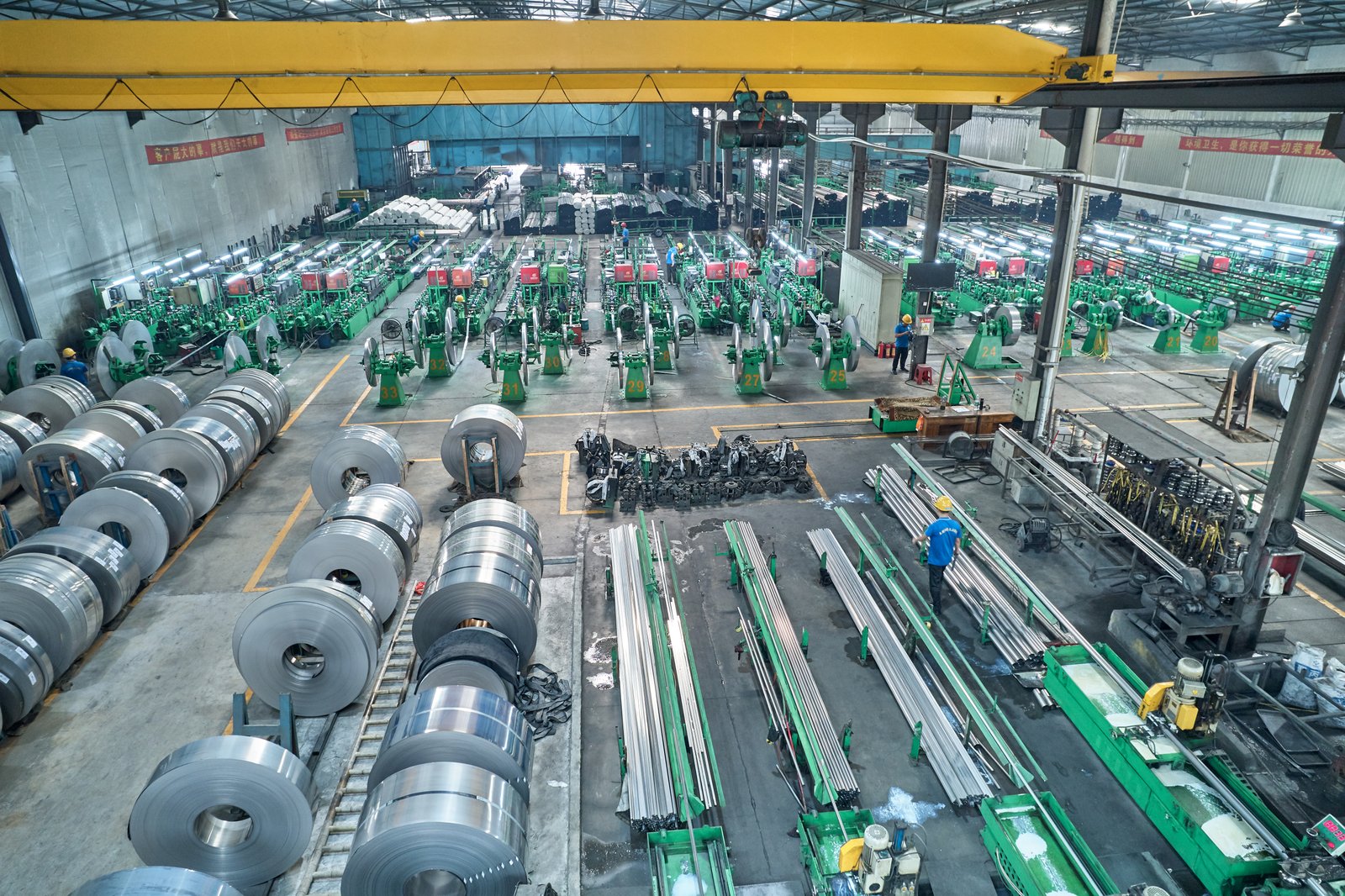
The journey to understanding these processes is a journey into the very heart of their corporate and national identities. It involves dissecting the layers of requirements built up over the years, each one a response to a past challenge or a step towards a future goal. For any company serious about this market, this historical homework isn't optional; it's the foundation upon which a successful strategy is built.
The Genesis of Saudi Aramco's Supplier Qualification System
Saudi Aramco's approach to supplier qualification is deeply rooted in its history as the steward of the Kingdom's vast energy resources. In its formative years, the company largely relied on established international standards, such as those from the American Petroleum Institute (API) and ASTM. However, as it took on more complex projects in uniquely challenging environments, like corrosive sour gas fields, it became clear that generic standards were insufficient. This operational necessity led to the development of the Saudi Aramco Materials System Specifications (SAMSS)3. These are not just guidelines; they are comprehensive and exacting standards that often surpass international norms, dictating everything from material composition to mandatory testing procedures.
This internal evolution marked a significant shift. Aramco was no longer just a consumer of international standards; it was becoming a global standard-setter in its own right. As a manufacturer, we at MFY had to recognize that simply being compliant with ASTM was not enough. To supply a project for Aramco, we needed to demonstrate our capability to manufacture stainless steel tubes to the letter of a specific SAMSS document. This required investment in new testing protocols and a deeper level of metallurgical expertise within our R&D teams.
The most profound evolution, however, came with the launch of the In-Kingdom Total Value Add (IKTVA) program. This wasn't just a procurement policy; it was a strategic mandate designed to link Aramco's immense purchasing power to the Kingdom's economic diversification goals under Vision 2030. IKTVA measures a supplier's contribution to the local economy, including local manufacturing, workforce development, and investment. For an international company like MFY, this presented a new, non-technical challenge. We had to rethink our entire business model for Saudi Arabia, moving from a simple export model to one that actively contributed to the local value chain.
ADNOC's Path to a Unified Vendor Management Framework
The Abu Dhabi National Oil Company (ADNOC) faced a different set of historical challenges that shaped its vendor approval process. For many years, ADNOC operated as a collection of distinct operating companies (OpCos), each managing its own projects, procurement, and vendor lists. A supplier approved for one ADNOC entity was not automatically approved for another. This fragmented system created inefficiencies and inconsistencies, both for ADNOC and for its suppliers. I recall working with a construction contractor in Abu Dhabi who had to manage separate, time-consuming registration processes for three different ADNOC OpCos simultaneously for the same type of MFY stainless steel tubes.
Recognizing these challenges, ADNOC embarked on a major strategic transformation to unify its operations. A key part of this was the creation of a centralized commercial directory and a single, streamlined vendor registration and pre-qualification process. The goal was to create a "one-stop-shop" for suppliers, enhancing transparency, reducing duplication, and ensuring that a consistent, high standard of quality and performance was applied across the entire ADNOC Group. This move significantly simplified the initial point of entry for companies like ours.
Concurrent with this streamlining effort, ADNOC launched its own In-Country Value (ICV) program in 2018. Similar in spirit to Aramco's IKTVA, the ICV program is designed to drive economic diversification, localize critical parts of the supply chain, and create employment opportunities for Emiratis. The program requires all suppliers to obtain an ICV certificate from an approved certifying body, which quantifies their contribution to the UAE economy. This certificate is now a mandatory requirement for participating in ADNOC tenders. For MFY, this meant that the performance of our local partners and distributors in the UAE directly impacted our competitiveness, forcing us to collaborate more closely to enhance their ICV scores.
A Comparative Analysis of Foundational Philosophies
While both IKTVA and ICV aim to localize economic value, their foundational philosophies and implementation have distinct differences that suppliers must understand. Aramco's IKTVA is deeply integrated into its corporate DNA and procurement process. The IKTVA score can be a significant factor in the tender evaluation, sometimes outweighing price. The program's focus is sharply aimed at building a robust industrial and service ecosystem directly supporting the energy sector within the Kingdom.
ADNOC's ICV program, while also critical, was designed with a broader national mandate. It was later adopted across various government and semi-government entities in Abu Dhabi and the wider UAE, aiming to drive localization across multiple sectors of the economy, not just oil and gas. The ICV certification is more of a mandatory gateway; you need it to participate, and it plays a crucial role in commercial evaluations, but the formula encompasses a wider range of contributions to the national economy.
For a supplier like MFY, this means tailoring our strategy for each market. In Saudi Arabia, our focus might be on establishing a joint venture for a specific finishing process to maximize our IKTVA score. In the UAE, our strategy might involve broader partnerships that include logistics, local fabrication, and services that contribute to the wider economic fabric, thereby boosting our partner's ICV certificate. Understanding these nuances is key to moving from a potential supplier to a preferred partner.
| Характеристика | Saudi Aramco (IKTVA) | ADNOC (ICV) |
|---|---|---|
| Primary Program | In-Kingdom Total Value Add | In-Country Value |
| Core Objective | Deepen and localize the energy sector supply chain | Diversify the national economy and increase local content |
| Implementation | Integrated directly into Aramco's procurement and evaluation | Mandatory certification required to participate in tenders |
| Scope | Primarily focused on the Saudi Aramco ecosystem | Broader application across multiple sectors in the UAE |
| Strategic Focus | Building a localized industrial base for the energy industry | Enhancing the overall economic contribution within the UAE |
SAMSS standards exceed international normsПравда
Saudi Aramco's Materials System Specifications (SAMSS) were developed to address unique operational challenges and often surpass API/ASTM standards in rigor.
ICV and IKTVA programs are identicalЛожь
While both promote local content, IKTVA focuses narrowly on Aramco's supply chain while ICV has broader UAE economic diversification goals.
How does the current vendor approval landscape look in the Middle East?
Are you approaching the Middle Eastern energy market with an outdated playbook? The vendor approval landscape, once governed by relationships and paper trails, is now a high-tech arena where rules change fast. Relying on yesterday's information is the quickest way to face disqualification and miss out on era-defining projects.
The current vendor approval landscape for Saudi Aramco and ADNOC is dominated by three interconnected realities: mandatory, unforgiving digital procurement platforms, a decisive weighting on In-Country Value (IKTVA/ICV) scores in bid evaluations, and non-negotiable compliance with world-class Quality, Health, Safety, and Environment (QHSE) standards.
I remember my early visits to the region, where so much business was cultivated over coffee and a handshake. Those days are gone. Today, your first "handshake" is with a digital portal like SAP Ariba, and it has no time for charm. It demands perfection. This shift to a digital, data-driven evaluation process has been profound. It's no longer enough to have a great product; you must prove your value through a labyrinth of meticulously managed data points, from your local spending to your safety records. I've witnessed companies with technically superior products fail because they couldn't navigate this new reality. They underestimated the strategic importance of their ICV score or had a single compliance document out of date in the digital system. In this modern landscape, these three pillars—Digital Proficiency, Local Value, and QHSE Excellence—are not separate hurdles to be cleared one by one. They are intertwined threads that form the very fabric of your qualification. Your digital submission is where you must upload your certified ICV score and your impeccable QHSE records, creating a single, holistic picture of your company's worthiness as a partner.

Understanding this triad is the key to unlocking the market. It requires a modern strategy that embraces technology, builds genuine local partnerships, and fosters an unshakeable culture of quality. Those who master this integrated approach will find themselves not just approved, but preferred.
The Unyielding Dominance of Digital Procurement Portals
The primary gateway to both Saudi Aramco and ADNOC is now a digital one. For Aramco, this is predominantly SAP Ariba; for ADNOC, their own sophisticated commercial directory. These platforms are not simply submission portals; they are the digital gatekeepers that act as the first line of screening. They are exacting, automated, and entirely unforgiving of human error. A misplaced decimal, an expired certificate, or a miscategorized service can trigger an automated rejection before your application ever reaches a human procurement officer. This digital-first approach demands a new level of meticulousness.
At MFY, we had to fundamentally change our mindset. We now treat our profiles on these platforms as critical digital products, not as administrative tasks. We have a dedicated team member whose sole responsibility is the health of our digital presence on these portals. I recall a difficult lesson we learned when a key partner, an equipment integrator, was blocked for weeks from a major tender. The cause was a simple data entry mismatch between an uploaded insurance certificate and the expiry date typed into the corresponding field. The algorithm flagged it as a non-conformance, and the opportunity was nearly lost. This experience taught us that your digital twin must be a perfect reflection of your physical reality.
This reality necessitates a proactive, almost obsessive approach to data management. The platforms use algorithms to pre-qualify and score vendors based on the data provided. Your company is, in effect, being judged by an AI before it's ever judged by a person. This means every field must be populated with precision, and every supporting document must be current and correctly formatted. Viewing these portals as mere administrative hurdles is a strategic error; they are the primary battleground where your initial credibility is won or lost.
In-Country Value: From Buzzword to Decisive Factor
In today's landscape, In-Country Value (IKTVA in Saudi Arabia, ICV in the UAE) has evolved from a corporate social responsibility buzzword into a hard-nosed, decisive commercial factor. A high score is no longer a "nice to have"; it is a powerful competitive advantage that can directly influence the outcome of a tender, sometimes even trumping a lower price. Both Aramco and ADNOC have made it clear that they are using their immense procurement power to build sustainable local economies, and your willingness to contribute is a key measure of your suitability as a partner.
This shift has profound implications for how we structure our bids. For instance, we worked with a major engineering contractor bidding for an ADNOC gas pipeline project. By partnering with MFY and leveraging our strong, certified ICV score—achieved through our joint-venture warehousing and logistics facility in the UAE—the contractor was able to significantly boost their overall bid's ICV score. This strength allowed them to be more strategically competitive on other commercial terms, ultimately helping them win the contract. Our investment in the local economy became their competitive edge.
It is crucial, however, to approach this strategically rather than superficially. The certifying bodies and the NOCs themselves are adept at spotting "ICV-washing," where a company creates a thin local veneer without real substance. Your commitment must be authentic and demonstrable. For MFY, this meant moving beyond a simple distributor agreement. We entered into a joint venture to create a pipe finishing and threading facility in Jubail. This not only created local jobs and utilized local services—dramatically improving our IKTVA score—but it also demonstrated a long-term, tangible commitment to the Kingdom's industrial ecosystem. This is the level of strategic investment required to turn this requirement from a hurdle into a winning advantage.
QHSE & Technical Audits: The Ultimate Stress Test
While digital prowess and local value get you to the table, it is your performance in the Quality, Health, Safety & Environment (QHSE) and technical audits that proves you deserve to stay. These audits are the ultimate stress test of your organization's competence and integrity. Having basic ISO 9001, 14001, and 45001 certifications is merely the price of entry. The real evaluation is against the NOCs' own proprietary standards, such as the Saudi Aramco Materials System Specifications (SAMSS), which are among the most demanding in the world.
The audit process is famously intense. I tell my team to prepare for an experience where the auditors don't just review your paperwork; they live on your factory floor for days. They are trained to find the weak points in your system. I'll never forget an audit for our duplex stainless steel tubes. The lead inspector pointed to a single, finished tube on a truck ready for shipment and said, "Show me the birth certificate of this pipe." Thanks to our integrated ERP system, we could scan its barcode and, within minutes, present the entire digital thread—the original raw material heat number, the MTR from the mill, every machine it touched, every quality check it passed, and the digital signature of every technician involved. This is the expected level of traceability; anything less is a failure.
Passing this test provides more than just an approval stamp; it builds immense institutional trust and creates a virtuous cycle. Once you have successfully passed a rigorous audit for a high-specification product, like pipes for sour gas service compliant with NACE standards, you gain enormous credibility. This achievement can often pre-qualify you for other critical product categories, effectively shortening future approval processes. The immense upfront investment in building a world-class, verifiable quality system pays dividends for years to come, solidifying your reputation as a supplier of choice who can be trusted when the stakes are at their highest.
| Landscape Pillar | Strategic Focus | Common Pitfall | Подход MFY |
|---|---|---|---|
| Digital Platforms | Data precision and digital storefront management | Treating portals as a simple administrative task | Dedicated "Portal Administrator" and internal data audits |
| In-Country Value | Building genuine, demonstrable local economic contribution | Superficial "ICV-washing" with no real substance | Joint ventures for local manufacturing and finishing services |
| QHSE & Technical | Proving process integrity and end-to-end traceability | Assuming standard ISO certifications are sufficient | Investment in advanced NDT and an integrated ERP for "birth certificate" traceability |
ICV scores impact bid competitivenessПравда
IKTVA/ICV scores are now a primary evaluation criterion alongside price and technical compliance in Middle East procurement.
Personal relationships drive procurementЛожь
Modern Middle East procurement is now fully digitized through platforms like SAP Ariba, replacing traditional relationship-based approaches.
What challenges do companies face when seeking vendor approval from Saudi Aramco and ADNOC?
You have a world-class product and a competitive price, a perfect fit for the Middle East's demanding energy sector. Yet, you find yourself hitting a wall, facing frustrating delays and rejections in the Saudi Aramco approval process4 and ADNOC approval process, costing you significant time, money, and opportunity.
Companies seeking vendor approval from Saudi Aramco and ADNOC commonly face three major challenges: navigating the immense and complex documentation requirements, meeting the stringent and costly in-country value (IKTVA/ICV) mandates, and passing the rigorous, in-depth technical audits that scrutinize every aspect of production.
These are not just administrative hurdles; they are designed as a comprehensive stress test for your entire organization. I speak to business leaders all the time who underestimate the sheer scale of the undertaking. They see it as a sales function, but in reality, it requires a concerted effort from a company's technical, financial, legal, and quality departments. The first challenge, the "documentation labyrinth," tests your organizational diligence and attention to detail. The second, meeting IKTVA/ICV scores, tests your strategic commitment to the local market beyond simple sales. And the third, the technical audit, tests the very core of your operational and manufacturing excellence. Many companies approach the process sequentially, only to find that they should have been working on all three fronts simultaneously. Understanding these challenges in detail is the first step toward building a realistic and effective plan to conquer them, turning what seems like an insurmountable barrier into a structured, manageable process.
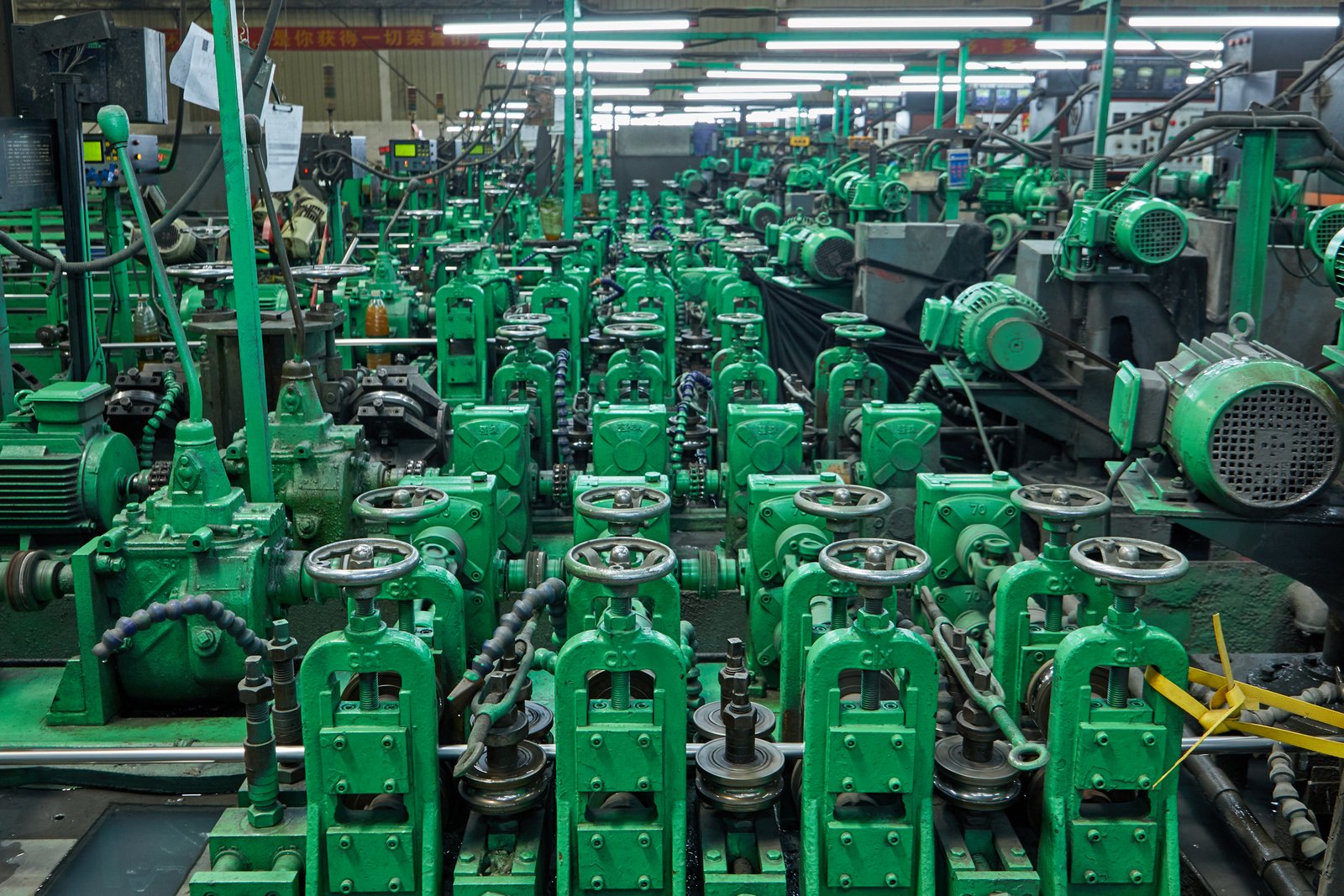
Overcoming these challenges is a testament to a company's quality, commitment, and strategic vision. It's a difficult journey, but the rewards—access to some of the largest projects in the world—are well worth the effort. It requires patience, investment, and a willingness to see the process not as a barrier, but as a roadmap to becoming a better, more capable supplier.
Documentation Labyrinth: A Test of Endurance
The sheer volume and specificity of the required vendor documentation requirements5 is often the first shock for new applicants. This is far beyond submitting a company profile and a few certificates. The process requires a comprehensive dossier that represents a complete organizational X-ray. You will be asked for multiple years of audited financial statements, detailed quality assurance and quality control (QA/QC) manuals, Health, Safety & Environment (HSE) policies and performance records, your complete corporate organogram, supply chain management procedures, and legally attested copies of all trade licenses and certifications.
The challenge is compounded by the need for precision. Every document must be current, complete, and correctly translated and notarized if required. There is no room for ambiguity. I remember our first attempt to get MFY pre-qualified for a specific product category years ago. We spent weeks compiling a mountain of paperwork. Our application was returned within a month. The reason? Our ISO 14001 certificate had been translated into English, but the translation was not certified by an approved body. It was a small, seemingly minor oversight, but in a system built on precision and trust, it was enough to cause a rejection.
This "documentation labyrinth" is a deliberate test of a company's organizational capacity and seriousness. It filters out those who are not prepared to invest the necessary resources. Successfully navigating it requires creating a dedicated project team, developing a meticulous checklist, and implementing a "right first time" mentality. It's a marathon of paperwork that requires incredible endurance and an unwavering eye for detail.
Meeting Sky-High Technical and Quality Benchmarks
For a manufacturer of critical components like stainless steel tubes, passing the technical qualification is the most intensive part of the journey. This goes far beyond standard product specifications. It involves a deep-dive audit of your entire manufacturing and quality control process. Aramco and ADNOC need to be certain that your products can withstand the extreme pressures, temperatures, and corrosive environments found in their operations. This certainty is built through rigorous verification.
The process often starts with a review of your technical submittals, where you must provide detailed evidence of your capabilities. For instance, when we sought approval for our duplex stainless steel tubes for a sour gas application, we had to provide not just the material test certificates, but also our entire welding procedure specification (WPS), the procedure qualification records (PQR), and the qualification records for the individual welders and NDT technicians. We had to prove that our process for heat treatment was consistent and effective in creating the required metallurgical microstructure.
The ultimate test is the plant audit. An inspection team will visit your facility for several days. They will not stay in the conference room. They will be on the factory floor, selecting random samples for re-testing in your lab, verifying the calibration certificates of your micrometers and ultrasonic testers, and interviewing your quality control inspectors. I recall an ADNOC audit where the inspector asked to see the raw material traceability records for a specific coil of steel we had used six months prior. Thanks to our integrated ERP system, we could pull up the records in minutes, tracing it back to the original heat number from the steel mill. This level of granular verification is the standard. Failure to demonstrate this control and traceability is a common reason for technical disqualification.
The Strategic Hurdle of IKTVA/ICV and Competition
Even if you have flawless documentation and a technically superior product, you can still fail the approval process if you neglect the strategic component: the In-Country Value score. For an international company with manufacturing based in China, this is arguably the most complex challenge. We don't have the inherent advantage of being a local Saudi or Emirati company. Therefore, our IKTVA/ICV score starts at a disadvantage. We have to proactively and strategically build our score.
This goes beyond simply hiring a local sales agent. To make a meaningful impact on your score, you need to make tangible investments in the local economy. This could involve establishing a local warehouse and distribution center, partnering with a local firm for finishing services like coating or cutting, investing in training programs for local staff, or even committing to a joint venture for local manufacturing. Each of these options requires significant capital investment and strategic planning. It changes the entire financial model of entering the market.
This is also where you face the toughest competition. You are not just competing against other international suppliers; you are competing against well-established local manufacturers and global giants who have had a presence in the region for decades. These companies have perfected their IKTVA/ICV strategies. They have existing facilities, a localized workforce, and deep relationships. Overcoming this requires a compelling value proposition. At MFY, our strategy has been to leverage our manufacturing efficiency and innovation to form partnerships where we provide the high-quality core product, and our local partner provides the finishing, logistics, and services that build the crucial IKTVA/ICV score. It's a symbiotic relationship that turns a strategic hurdle into a shared opportunity.
| Категория вызова | Specific Example | Impact on Approval Process |
|---|---|---|
| Documentation | Incorrectly notarized translation of a legal document | Immediate application rejection, causing months of delay |
| Technical | Failure to provide calibration records for testing equipment | Audit failure, leading to technical disqualification |
| Strategic | Low IKTVA/ICV score due to lack of local investment | Non-competitive bid, loss of contract to a higher-scoring rival |
| Competition | Bidding against a long-established, pre-approved local firm | Difficulty in differentiation on factors other than price |
Documentation requires precisionПравда
Every document must be current, complete, and correctly translated/notarized - even minor errors cause rejection.
ICV is optional for approvalЛожь
IKTVA/ICV scores are mandatory strategic requirements that directly impact approval chances and competitiveness.
What strategies can be employed to overcome these approval challenges?
Facing repeated roadblocks and rejections in the Aramco and ADNOC approval6 process can be incredibly demoralizing, making it feel like an impossible code to crack. It’s easy to become frustrated and abandon the effort. But with the right strategic framework, you can systematically dismantle these challenges.
To successfully overcome vendor approval challenges with Saudi Aramco and ADNOC, a company must adopt a proactive, multi-pronged strategy: dedicate a specialized internal task force, build authentic local partnerships to maximize in-country value, relentlessly pursue quality and documentation excellence, and engage transparently and patiently.
This isn't a task for a single department; it requires a holistic and committed organizational effort. The first step, creating a dedicated team, ensures focus and accountability, preventing the common mistakes that arise from a disjointed approach. The second, building local partnerships for IKTVA/ICV7, is the cornerstone of solving the IKTVA/ICV puzzle and demonstrating genuine market commitment. ly, a proactive stance on quality and documentation—treating them not as a burden but as a competitive advantage—is what will ultimately earn the trust of these demanding clients. I have personally guided MFY through this journey, and I can attest that these strategies are not theoretical. They are the practical, essential steps that transform a company from a hopeful applicant into a trusted, approved supplier. It's about shifting your mindset from selling a product to proving your partnership value at every level.
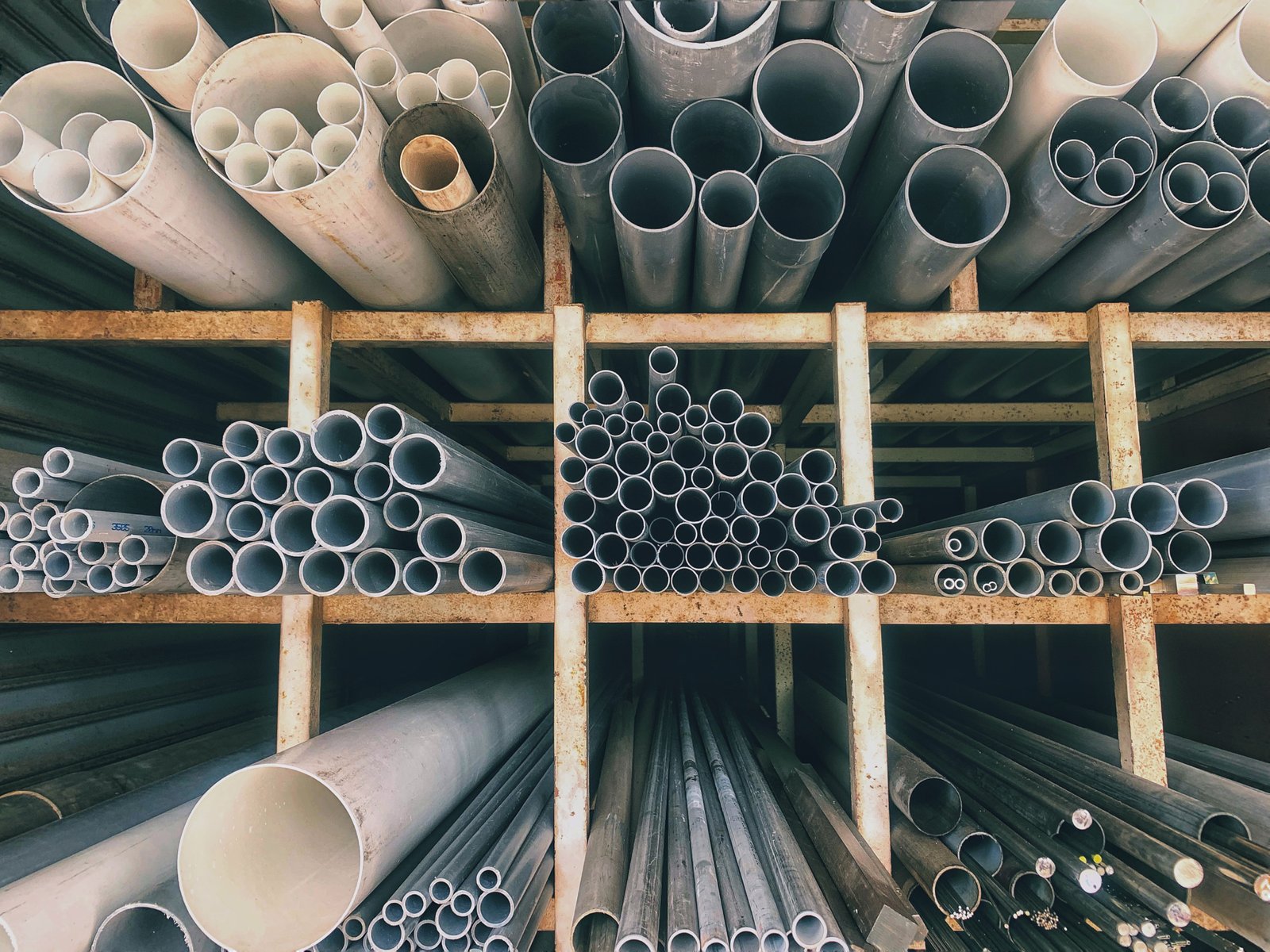
This strategic approach turns the grueling approval process into a journey of organizational improvement. It forces you to refine your processes, deepen your market understanding, and elevate your standards of quality. By embracing these strategies, you not only increase your chances of approval but also become a stronger, more competitive company overall.
Building a Dedicated "Approval Task Force"
The first and most critical strategic decision is to treat the vendor approval process as a core business project, not as an administrative task for the sales team. At MFY, we learned this early on. Our initial attempts were fragmented, with sales handling commercial aspects, engineering managing technical data, and finance providing statements. This led to inconsistencies and delays. The solution was to create a cross-functional "Middle East Compliance Task Force."
This team includes a project lead and dedicated members from our sales, quality assurance, engineering, and legal departments. Their collective Key Performance Indicator (KPI) is simple: achieve and maintain vendor approvals with our key Middle Eastern clients. This structure creates a central hub of expertise and accountability. The team leader manages the project timeline, ensuring all documents are consistent and submitted correctly through portals like SAP Ariba8. The quality engineer ensures all technical specifications are met and documented, while the legal expert verifies all attestations and corporate paperwork.
Having this dedicated task force has been a game-changer. They become internal experts on the specific requirements of Aramco and ADNOC. They develop a deep understanding of the nuances of the IKTVA and ICV programs and build relationships with the client's procurement professionals through official channels. This focused effort prevents the siloed mistakes that so often derail applications and transforms the process from a chaotic scramble into a well-managed project.
The Power of Local Partnerships and Presence
For any international company, solving the In-Country Value challenge is paramount. The most effective strategy to achieve this is through building genuine local partnerships. A local presence is not just about having a nameplate on an office door; it's about making tangible investments that contribute to the local economy and demonstrate long-term commitment. This is the fastest and most credible way to improve your IKTVA or ICV score.
There are several models for this. You can establish an agency agreement with a well-respected local trading company. A stronger approach is to form a joint venture (JV) or to invest directly in local facilities. For example, to boost our IKTVA score and better serve the Saudi market, MFY entered into a strategic partnership with a prominent distributor in Dammam. We didn't just sign a sales contract; we co-invested in a state-of-the-art local warehousing and logistics facility. This allowed us to hold inventory in-kingdom, drastically reducing lead times for our clients and, crucially, adding significant value that was reflected in our IKTVA score.
A strong local partner does more than just boost your score. They provide invaluable on-the-ground market intelligence, help you navigate the local business culture and bureaucracy, and can advocate for you within the client's organization. They turn you from a foreign entity into a locally-invested business. Choosing the right partner—one who shares your commitment to quality and has a stellar reputation—is one of the most important strategic decisions you will make.
A Proactive Stance on Quality and Documentation
The final pillar of a successful approval strategy is to adopt a mindset of proactive excellence in quality and documentation. Don't wait for an audit to find your weaknesses. Instead of merely meeting the minimum required standards, aim to exceed them. This means investing in advanced certifications, implementing more rigorous internal quality checks, and maintaining your documentation in a constant state of readiness.
At MFY, we created what we call our "Master Approval Dossier." This is a secure, cloud-based repository containing every conceivable document that could be requested during a pre-qualification or audit. It includes all our corporate licenses, financial statements, technical datasheets, material certificates, QA/QC manuals, HSE procedures, and employee qualifications. Every document is reviewed and updated quarterly, ensuring it's always current. When a request for information comes, we don't have to spend weeks gathering information; we can assemble a complete, accurate package in a matter of hours.
Furthermore, we embrace a culture of continuous improvement and self-scrutiny. Twice a year, we conduct our own "mock Aramco audit." We hire an independent consultant with experience in oil and gas industry audits to come to our facility and put our systems, processes, and people to the test. They act as an Aramco or ADNOC inspector, identifying gaps and non-conformities. This proactive approach allows us to find and fix our own weaknesses before they can be discovered in a real audit, demonstrating a level of maturity and commitment to quality that sets us apart.
| Strategy | Ключевые действия | Desired Outcome / KPI |
|---|---|---|
| Dedicated Task Force | - Form cross-functional team (Sales, Quality, Legal) - Appoint a dedicated project lead - Hold regular progress meetings |
- 50% reduction in application processing time - Zero rejections due to administrative errors |
| Local Partnership | - Identify and vet potential local partners - Define partnership model (e.g., JV, local warehousing) - Co-invest in local facilities/services |
- 15% improvement in IKTVA/ICV score within 2 years - Increased number of successful bids |
| Proactive Quality | - Create and maintain a "Master Approval Dossier" - Conduct semi-annual internal "mock audits" - Invest in advanced, non-required certifications |
- Pass 100% of external client audits on the first attempt - Qualification for higher-tier, more critical product categories |
Local partnerships boost ICV scoresПравда
Authentic local partnerships demonstrate commitment to the local economy, directly improving In-Country Value (ICV) scores with Aramco/ADNOC.
Sales teams alone handle approvalsЛожь
Approvals require cross-functional task forces (quality, legal, engineering) - sales teams lack the technical/documentation expertise for successful submissions.
Which technologies can assist in meeting Middle-East vendor approval specifications?
The manual, paper-based approach to managing the complex web of vendor approval requirements is no longer viable. Simple human errors in this high-stakes environment are incredibly costly, and falling behind technologically can make your company appear inefficient to digital-first giants like Aramco and ADNOC.
To effectively meet and exceed Middle-East vendor specifications, companies must leverage key technologies. These include an integrated Enterprise Resource Planning (ERP) system for traceability, a digital Quality Management System (QMS) for compliance documentation, and advanced non-destructive testing (NDT) technologies to guarantee material integrity.
Embracing these technologies is not an operational expense; it is a strategic investment in accuracy, efficiency, and trust. In an evaluation environment that is increasingly data-driven, your technological maturity becomes a key part of your value proposition. For us at MFY, technology is the backbone of our compliance strategy. It allows us to provide the instant, accurate, and verifiable data that auditors and procurement managers demand. From tracing the origin of a steel coil with our ERP system to generating a complete quality dossier from our QMS, technology underpins our claim of being a reliable and transparent partner. It's about using digital tools to build a foundation of undeniable proof for your quality and processes.

Ultimately, the right technology stack transforms compliance from a reactive, manual burden into a proactive, automated strength. It provides the digital evidence needed to pass rigorous audits and gives clients like Saudi Aramco and ADNOC the confidence that you have robust control over your entire supply chain.
Digitalizing Quality and Compliance with QMS/DMS
One of the greatest challenges in the approval process is managing the sheer volume of documentation related to quality and compliance. A digital Quality Management System (QMS) or Document Management System (DMS) is the essential technology to master this challenge. These systems provide a centralized, controlled environment for all critical documents, such as quality manuals, standard operating procedures (SOPs), calibration records, and material test certificates.
The core function of a QMS/DMS is to automate control. It manages versioning, ensuring that only the most current, approved version of a document is in use. It creates a complete, unalterable audit trail, showing who accessed, modified, or approved any document and when. This is invaluable during an audit. Instead of manually searching through filing cabinets, you can instantly retrieve a specific, certified document with its full history. For example, our cloud-based QMS is integrated directly with our production workflow. When a batch of stainless steel tubes successfully passes hydrostatic testing, the signed-off report is immediately uploaded and linked to that production batch, creating an unbreakable digital record.
This level of digital organization prevents the common errors that can derail an application, such as submitting an expired certificate or an outdated procedure. It demonstrates to clients like Aramco and ADNOC that your quality management is not just a paper exercise but a living, controlled, and verifiable digital process. It replaces manual chaos with automated order and is fundamental to proving your organizational maturity.
Enhancing Traceability with ERP and Blockchain
Traceability is a non-negotiable requirement in the oil and gas industry. Clients need absolute certainty about the provenance and history of every component in their critical infrastructure. An integrated Enterprise Resource Planning (ERP) system, such as SAP or Oracle, is the foundational technology for achieving this. An ERP system unites all aspects of your operation—from raw material procurement and inventory management to production scheduling and quality control—into a single, unified database.
For MFY, our ERP system is our single source of truth. When we receive a coil of raw stainless steel, it is assigned a unique heat number which is logged in the ERP. This number follows the material through every stage of production. We can scan a barcode on a finished pipe ready for shipment and our ERP system can instantly trace its entire lineage: which coil it came from, who the supplier was, the date it was processed, the results of every quality test performed on it, and the technicians who performed them. This ability to provide instantaneous, end-to-end traceability is immensely powerful during a technical audit.
Looking to the future, blockchain technology offers the potential for an even higher level of trust and transparency. While still an emerging technology in our sector, we are actively exploring its use for our most critical products. A blockchain ledger could create a permanent, immutable record of a pipe's journey from the steel mill to the final installation site. Imagine an Aramco inspector scanning a QR code on a pipe and instantly seeing its entire verified, tamper-proof history on their tablet. This is the future of supply chain trust, and investing in the underlying technologies like ERP today is the necessary first step.
Advanced Manufacturing and Testing Technologies
ly, the technology embedded in your actual manufacturing and testing processes provides the ultimate proof of your product's quality. Investing in advanced equipment is a direct investment in your ability to meet the most stringent technical specifications. For stainless steel tube manufacturing, this includes areas like welding, forming, and, most critically, non-destructive testing (NDT).
While standard NDT methods like conventional ultrasonic testing are sufficient for many applications, the critical nature of the energy sector often demands more. At MFY, we invested in a Phased Array Ultrasonic Testing (PAUT) system. Unlike conventional methods that use a single probe, PAUT uses a multi-element probe that can be electronically controlled to send ultrasonic beams at multiple angles. This creates a detailed, cross-sectional image of a weld, much like a medical ultrasound, allowing our inspectors to detect and characterize microscopic flaws with far greater accuracy.
When we include a PAUT inspection report in our technical submittal to a client like ADNOC, it sends a powerful message. It shows that we are not just meeting the minimum standard; we are proactively using the best available technology to ensure the integrity of our products. Similarly, using laser-based measurement systems for dimensional verification or orbital welding for perfect, repeatable weld quality demonstrates a commitment to technological excellence. This advanced hardware is a tangible asset that auditors can see and touch, providing undeniable evidence of your capabilities.
| Technology Category | Specific Application | Benefit for Vendor Approval | Example System/Software |
|---|---|---|---|
| Document Management | Centralized control of QMS/HSE documents and certificates | - Prevents use of outdated documents - Provides instant audit trail - Speeds up submission preparation |
SharePoint, MasterControl, Veeva Vault |
| Supply Chain | End-to-end traceability of materials from source to shipment | - Proves robust process control - Fulfills client traceability mandates - Enables quick data retrieval during audits |
SAP S/4HANA, Oracle NetSuite |
| Testing & Inspection | Advanced weld inspection for critical applications | - Detects flaws missed by standard methods - Demonstrates commitment to superior quality - Provides detailed, credible test reports |
Phased Array UT (e.g., Olympus OmniScan) |
ERP systems enhance traceabilityПравда
ERP systems like SAP or Oracle provide end-to-end traceability by logging every stage of production, which is crucial for meeting Middle-East vendor approval requirements.
Standard NDT methods are sufficient for all applicationsЛожь
While standard NDT methods work for many applications, critical sectors like oil and gas often require advanced methods like Phased Array Ultrasonic Testing (PAUT) for higher accuracy.
Заключение
Ultimately, securing vendor approval from Saudi Aramco and ADNOC is a transformative journey. It demands a holistic strategy that fuses meticulous preparation, deep local commitment through IKTVA/ICV, and the adoption of advanced technology. Success proves you are more than a supplier; you are a partner.
-
Learn about the stringent vendor requirements to succeed in Middle Eastern energy markets. ↩
-
Understand value-add programs that enhance local economic contributions for suppliers. ↩
-
Discover the detailed specifications vendors must meet to supply to Saudi Aramco. ↩
-
Learn about the specific challenges and steps in the Saudi Aramco approval process. ↩
-
Understand the detailed documentation requirements for ADNOC's approval process. ↩
-
Learn key strategies for successful vendor approval with Aramco and ADNOC clients ↩
-
Explore ways to enhance your local value and partnerships for better scores ↩
-
Discover how SAP Ariba platform simplifies vendor approval submissions and procurement ↩
У вас есть вопросы или нужна дополнительная информация?
Свяжитесь с нами, чтобы получить индивидуальную помощь и квалифицированный совет.
